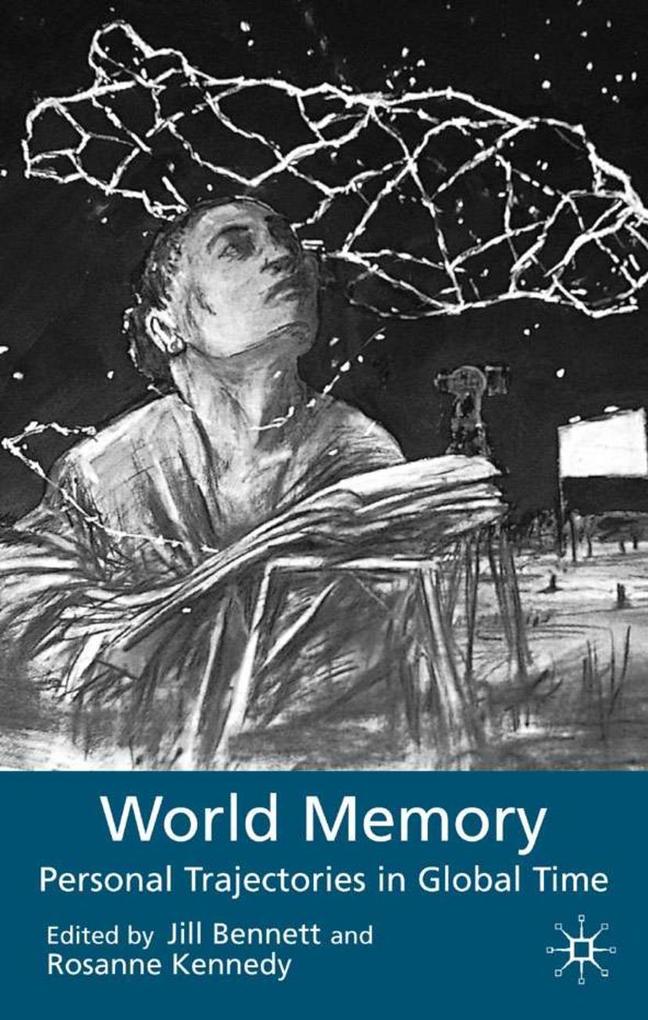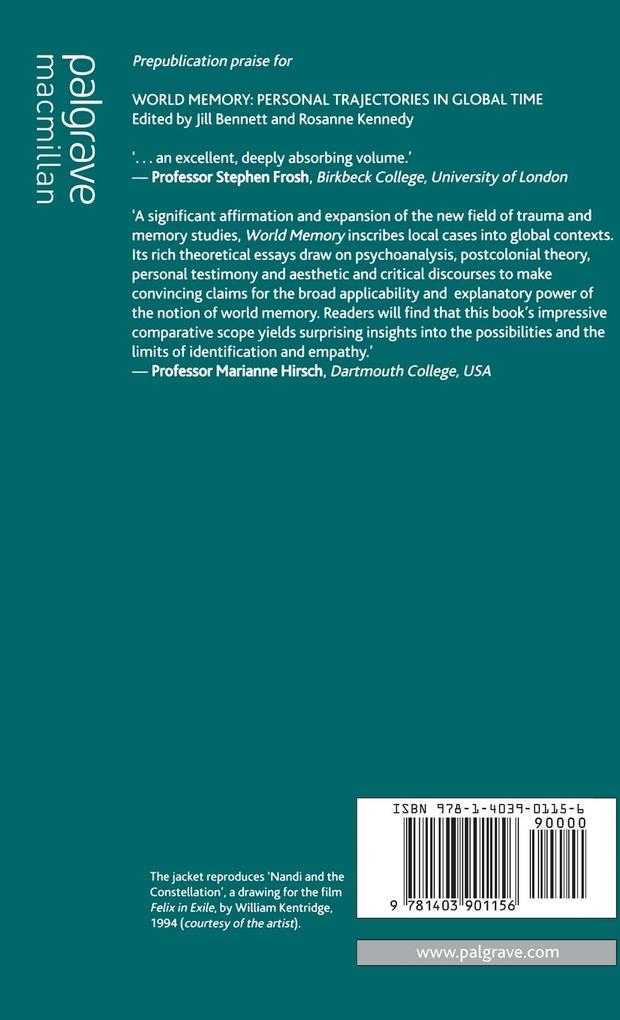
Zustellung: Sa, 12.07. - Mi, 16.07.
Versand in 7 Tagen
VersandkostenfreiBestellen & in Filiale abholen:
How do we account for experiences of trauma and memory in multicultural and 'globalized' societies? World Memory blends the study of trauma and memory with perspectives from postcolonial theory to explore a range of traumatic personal and socio-historical experiences: September 11, the Holocaust, Stolen Generations, Apartheid, racism, sexual abuse, migration and diaspora. From diverse disciplinary bases, the writers examine psychoanalytic, artistic, literary and vernacular accounts of trauma, collectively revealing what happens when languages of memory traverse boundaries of culture, space and time.
Inhaltsverzeichnis
Introduction; J. Bennett & R. Kennedy Trauma and memory: A new imaginary of temporality; A. Huyssen Bad memories: The poetics of memory and the difference of culture; D. Losche Anthropology as eulogy: On loss, lies and license; J. Loureide Biddle Re-collecting Proskurov; A. Brennan VERNACULAR LANGUAGES OF TRAUMA Language as a skin; A. Scott Aged bodies as sites of remembrance: Colonial memories in diaspora; S. Soo-Jin Lee Re-membering bodies, producing histories: Holocaust survivor narrative and Truth and Reconciliation Commission testimony; H. Grunebaum &Y. Henri Constructing shared histories: Stolen Generations testimony, narrative therapy and address; R. Kennedy & T. Wilson AESTHETIC LANGUAGES OF TRAUMA Bearing witness to ripples of pain; F. C. Ross Impossible memories and the history of trauma; E. Faye Tenebrae after September 11: Art, empathy, and the global politics of belonging; J. Bennett Wounds of repetition in the age of the digital: Chris Marker's cinematic ghosts; T. Murray Index
Produktdetails
Erscheinungsdatum
17. Dezember 2002
Sprache
englisch
Auflage
2002
Seitenanzahl
244
Herausgegeben von
J. Bennett, R. Kennedy
Verlag/Hersteller
Produktart
gebunden
Abbildungen
XI, 230 p.
Gewicht
445 g
Größe (L/B/H)
222/145/18 mm
ISBN
9781403901156
Entdecken Sie mehr
Pressestimmen
'An excellent, deeply absorbing volume.' - Professor Stephen Frosh, Birkbeck College, University of London
'A significant affirmation and expansion of the new field of trauma and memory studies, World Memory inscribes local cases into global contexts. Its rich theoretical essays draw on psychoanalysis, postcolonial theory, personal testimony and aesthetic and critical discourses to make convincing claims for the broad applicability and explanatory power of the notion of world memory. Readers will find that this book's impressive comparative scope yields surprising insights into the possibilities and the limits of identification and empathy.' - Marianne Hirsch, Dartmouth College, USA
'A significant affirmation and expansion of the new field of trauma and memory studies, World Memory inscribes local cases into global contexts. Its rich theoretical essays draw on psychoanalysis, postcolonial theory, personal testimony and aesthetic and critical discourses to make convincing claims for the broad applicability and explanatory power of the notion of world memory. Readers will find that this book's impressive comparative scope yields surprising insights into the possibilities and the limits of identification and empathy.' - Marianne Hirsch, Dartmouth College, USA
Bewertungen
0 Bewertungen
Es wurden noch keine Bewertungen abgegeben. Schreiben Sie die erste Bewertung zu "World Memory" und helfen Sie damit anderen bei der Kaufentscheidung.










